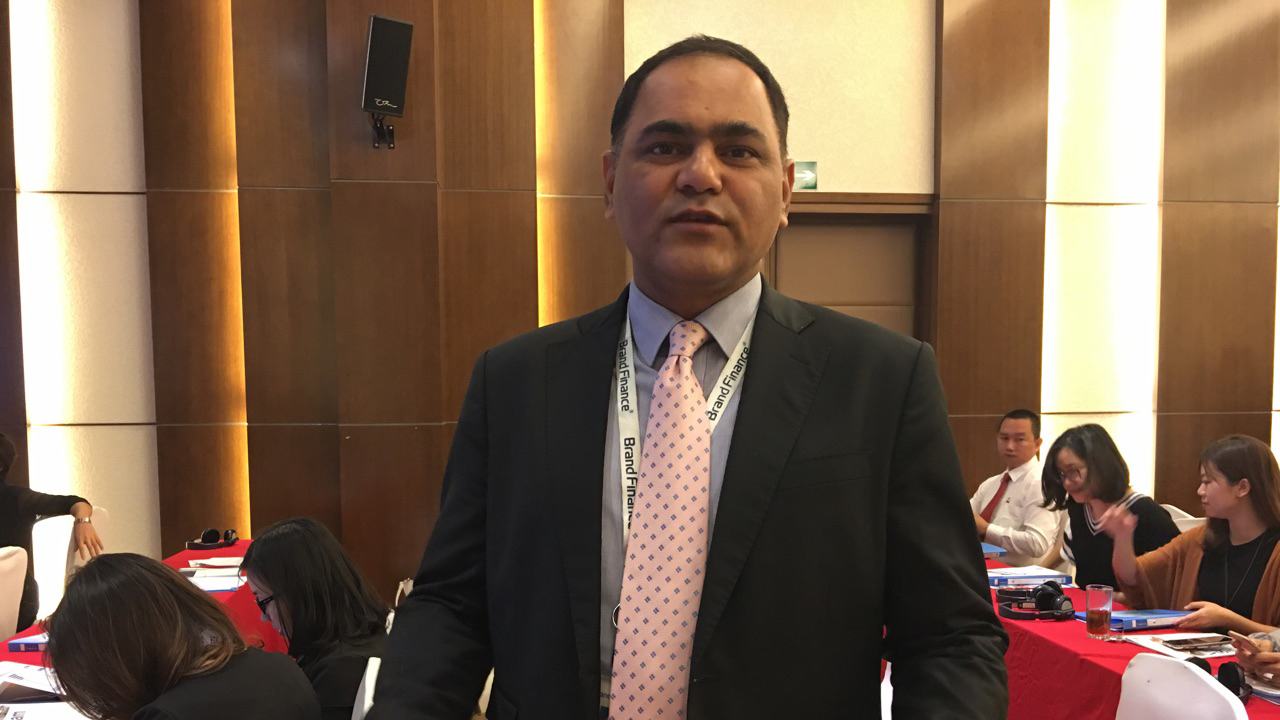Vietnam turns semiconductor vision into action
The global semiconductor industry is being reshaped by geopolitical tensions, shifting supply chains, and the surge of digital technologies.




Compared with some countries in ASEAN region such as Malaysia, Indonesia or Singapore, Vietnam has no brand in top 500 most valuable global brands while these countries have.

Brand Finance, a UK-based brand valuation and advisory firm, has recently announced the top 50 most valuable Vietnamese brands with a combined brand value of more than US$11 million.
The total value of ten leading Vietnamese brands accounts for 68 per cent of that of the top 50 brands. Among top ten, state-owned companies make up the majority and there are only two private brands including Vinhomes and Thaco.
It is notable that the ratio of brand value to enterprise value (BV/EV) of Vietnamese companies is quite low that creates inadequacies and limitations for businesses when negotiating for M&A (Mergers & Acquisitions) deals.
To understand more clearly this ranking as well as give advice to Vietnamese businesses, TheLEADER had a short interview with Samir Dixit, Managing Director of Brand Finance in Asia Pacific.
From top 50 most valuable Vietnamese brands 2017, what are your conclusion and comments for Vietnamese enterprises?
Samir Dixit: Over the years, Brand Finance has looked at the value of not only the top 10, the top 50 but even the branding of the nation.
I think Vietnamese enterprises now do not focus on the brand because their brand values have not changed a lot over many years.
Vietnamese companies need to manage and push the brand instead of only focusing on this because the demand for branding will create demand for products.
Businesses in Vietnam need to evaluate their brands, know where they are and how much they are worth.
Sometimes the brand is worth more than the business. You can trade and make US$10 million but your brand value can up to US$20 million.
Compared with other ASEAN countries such as Malaysia, Indonesia or Singapore, the BV/EV of Vietnamese enterprises is so low while GDP growth is high at an average 6 per cent per annum. What are reasons for this situation?
Samir Dixit: I think it is because people do not know how to drive and justify the value of their brands.
You think your business worth US$10 million and if there is one person to pay for you.
You think your business is worth US$10 million and if someone pays you a bit higher or even just US$9 million, you're likely to sell and fell happy about this.
However, in reality, your brand value is much higher. Because you do not value your brand or you do not know its value, you just stop at US$10 million level instead of offering US$30 in the negotiation and expectation.
Compared with some countries in ASEAN such as Malaysia, Indonesia or Singapore, Vietnam has no brand in top 500 most valuable global brands while these countries have. That means the internal strength of Vietnamese enterprises is still weak.
Foreign brands can enter Vietnamese market but companies of Vietnam is not likely to have capability of completing with other ones in other markets.
This competition is the real test for the brand and which brands can compete in other markets is a strong one.
Why does the list of top 10 brands not have the appearance of some big brands such as Sun Group, FLC?
Samir Dixit: We only rank the companies that are listed so some companies do not appear in this list because they are not listed.
In addition, we need financial information. The companies are absent in our ranking means that we cannot access their public financial information to build data.
Now mergers and acquisitions (M&A) is booming in Vietnam so what do you think about the relation between M&A and one company’s brand?
Samir Dixit: The simple reason for booming M&A in Vietnam is that Vietnam is growing very quickly, which attracts more investors.
There are more and more super deals in Vietnam because market is still large and the enterprises still lack capital or high technology.
It is like the property market, people get early will get good prices.
Moreover, there are more and more enterprises that consolidate to become bigger and the value of consolidation is higher and higher. The foreign investors looking at the market will feel the need to keep up with this trend.
The global semiconductor industry is being reshaped by geopolitical tensions, shifting supply chains, and the surge of digital technologies.
The change in APA approval authority is expected to shorten processing time and enhance business proactiveness in international tax negotiations.
As hybrid cloud systems grow more complex, Vietnamese enterprises are struggling to detect cybersecurity threats moving laterally within their own networks.
The submission of the draft resolution on Vietnam’s international financial center to the National Assembly heralds a new developmental era for the country.
More than just running a 5-star resort, Kristian Petersen is redefining the art of hospitality with a humane and sustainable leadership philosophy.
For Tyna Huynh, co-founder of Drinkizz, organic is not just a food choice but a way of life that fosters a deep connection between people, nature and community.